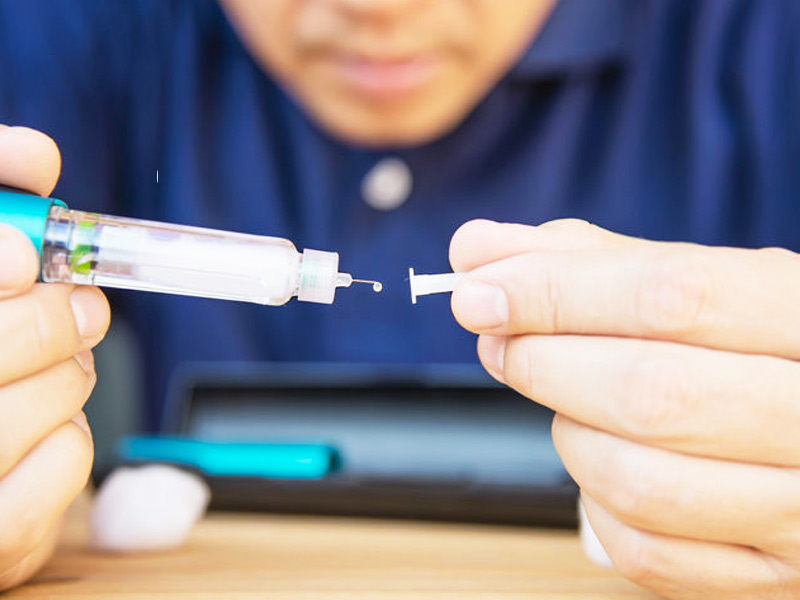
People with severe diabetes often take insulin to manage blood sugar levels. It becomes a part of their lives as they cannot do without insulin. Sometimes, by mistake, if someone overdoses on insulin, they need to find an immediate solution to get respite from the ill-effects. Overdose can lead to hypoglycemia, a condition that can turn fatal for the person. Here’s all you need to know about insulin overdose and how to manage this condition.
Table of Content:-
Symptoms of Insulin Overdose
Read below the symptoms of insulin overdose or hypoglycemia:
- Headache
- Feeling hungry
- Drowsiness
- Dizziness
- Depressed mood
- Fatigue
- Irritability
- Disorientation
- Rapid heartbeat
- Restlessness
- Nausea
- Pale skin
- Profuse sweating
- Nausea
- Slurred speech
- Tremor

These were normal symptoms that would occur after taking a high dose. However, if a person takes an extremely high dosage of insulin, they may experience severe symptoms like:
- Seizures
- Disorientation
- Coma
When you spot these symptoms, understand that you have gone high with the dosage and immediate medical aid is required.
Also Read: 6 Things You Need To Know If You Take Insulin Injections
What to do after overdosing insulin?
Here are some tips to manage the condition according to categories.

1. Overdose of rapid-acting insulin
- If you overdosed this insulin 15-20 minutes before, consume a rapid-acting carbohydrate immediately. This may include a sugary drink and a glucose tablet. After that, consume slower-acting carbs like bread. This prevents hypoglycemia.
- Within 20 minutes of injecting overdose, you must have fast-acting carbohydrates to get absorbed quickly.
- To counteract 1 unit of insulin, you need to have 10g of carbs. Remember the ratio as it helps in managing the situation. You can have extra carbs but do not consume less than what’s advised.
- If the dose is supremely high, call a doctor immediately.
2. Overdose of long-acting insulin
The effects of long-acting insulin remain for up to 24 hours. In order to manage the condition follow these steps:
- If the overdose was relatively smaller like 5 units extra, you need to keep your sugar levels high by consuming carbohydrates for 24 hours. This prevents the occurrence of hypoglycemia condition.
- If the overdose was high, take carbs and contact your doctor immediately to receive medication to control the condition.
- Consume a lot of carbs before going to bed as it might increase your sugar levels but it would prevent hypoglycemia condition.
Also Read: Want To Manage Diabetes Without Insulin Injections? This Fruit May Help

3. Injected rapid-acting insulin instead of basal insulin
- These are two types of insulin with different purposes and functions. If you have taken the wrong insulin, first stock up on carbohydrates and then only go to sleep. Carbs would spike sugar levels.
- You can also check your blood sugar levels at regular intervals for satisfaction. Do this until the time period of rapid-acting insulin.
- In between this, don’t forget to take the basal insulin that you missed. This could lead to ketoacidosis after a few hours.
- Tell someone from the family or a friend that you have mistakenly taken the wrong insulin so that they can check up on you if everything is fine.
If you feel discomfort or symptoms of hypoglycemia, call a doctor for consultation and visit a hospital if required to avert any mishappening.
Read more articles on Diabetes
Also watch this video
How we keep this article up to date:
We work with experts and keep a close eye on the latest in health and wellness. Whenever there is a new research or helpful information, we update our articles with accurate and useful advice.
Current Version